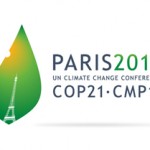Even as the Paris climate talks, or COP21, is likely to yield an agreement, albeit a weak one, governments are readying themselves to continue the battle in Nairobi, where they will converge again from 15-18 December for the World Trade Organisation’s (WTO) 10th Ministerial Conference (MC10). And, though the faces around the table will change, the positions adopted by various countries at Paris will only harden.
Take the stand that Western countries — led by the U.S. and Europe — are trying to force fit into all talks: that India and China deserve to be in a separate category since both have outgrown the “developing country” tag. This is being duly repeated by Western media and their think tanks. This implicitly requires India and China to make larger sacrifices than the rest of the developing countries.
In climate change negotiations, a “High Ambition Coalition” (comprising 100 countries, including the U.S.) has pitched for an “ambitious” deal that would require the world to limit global warming to below 1.5 degrees, against the earlier target of 2 degrees. This strategy achieves four things simultaneously.
One, it takes attention away from the pollution that industrialised countries continue to inflict upon the world. Two, it detracts from the package industrialised countries had promised to deliver but reneged — $100 billion of funding for developing and poor countries to help improve energy technologies. Three, it wins over island nations (which can be used in other negotiating forums), who have been complaining about rising water levels due to global warming. Four, it turns the needle of blame towards India and China, both of whom will obviously oppose the increased commitment expectations.
It is quite likely that the developed world lobby will try to replicate some of these strategies at MC10 talks as well.
For example, well ahead of the meeting, the U.S. has begun making noises (with some support from the U.S.-based think tanks and media) that India and China should not be included in the group of “developing countries”, especially when designing support for poor farmers. This, effectively, takes out the strongest proponents of the Doha Round of the WTO. Without these two, most other developing countries will find it difficult to resist pressure from the developed world lobby.
The conclusions are fairly predictable if the West is able to have its way. The U.S. will manage to achieve its goal of burying the Doha Development Agenda (DDA). In this endeavour, it has some help from WTO Director-General Roberto Azavedo, who has suggested on a deadline to finalise DDA and sees MC10 as the last opportunity to do so. This proposition was rejected by developing countries, including India. One reason for seeking to bury DDA is that the U.S. and other developed countries have already managed to swing Trade Facilitation Agreement (TFA). Uniquely, TFA was not part of original DDA but was shoe-horned into the Bali agreement of the WTO by the rich countries as a trade-off. Today, with TFA out of their way, the developed countries would want to bury the DDA.
It will also help torpedo WTO members’ plans to finalise a permanent solution for public food grains stockholding programme or a special safeguard mechanism (which allows developing countries to protect farmers from cheap imports or sharp price drops).
In fact, the U.S. has concurrently started pushing WTO for a deal on “new issues” — environment, labour, e-commerce, global value chains, investment, competition policy and transparency in government procurement — which will replace the development agenda.
As trade ministers congregate in the Kenyan capital next week, expect to see a reprisal of the Paris viewpoints.
Rajrishi Singhal is a former Senior Geoeconomics Fellow, Gateway House.
This blog was exclusively written for Gateway House: Indian Council on Global Relations. You can read more exclusive content here.
For interview requests with the author, or for permission to republish, please contact outreach@gatewayhouse.
© Copyright 2015 Gateway House: Indian Council on Global Relations. All rights reserved. Any unauthorized copying or reproduction is strictly prohibited.


